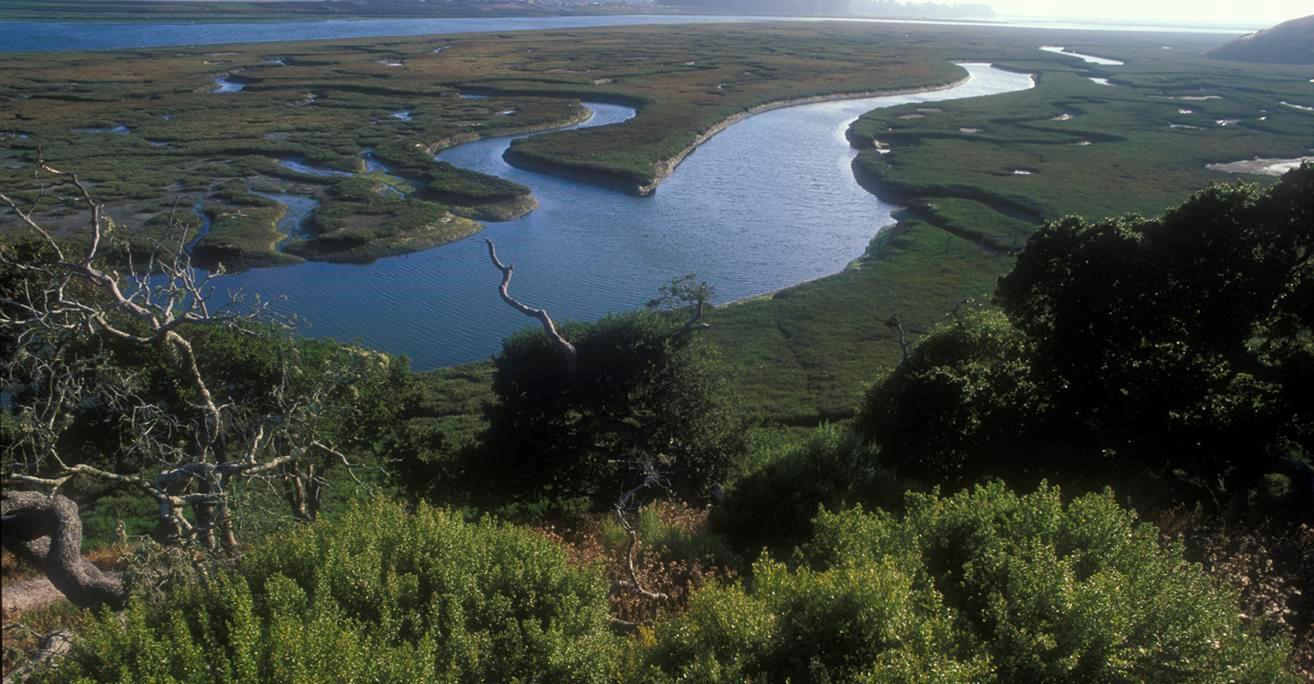Exploring the secrets of marsh happiness: “NOAA research reserve scientists and partners recently published a study that examines the secret to marsh happiness. The team learned that “happy” marshes shared similar characteristics, whereas “unhappy” marshes deteriorate in diverse ways. By understanding how marshes can deteriorate so differently, coastal managers can make wiser conservation decisions. Published in Environmental Research Letters, the study ground-truthed previous resilience findings from the National Estuarine Research Reserve System and U.S. Geological Survey. Many partners contributed, and the authors included scientists from the Elkhorn Slough and Narragansett Bay Research Reserves. … ” Read more from NOAA here: Exploring the Secrets of Marsh Happiness
After massive beetle outbreaks, some Western forests show signs of recovery: “Just a few years after simultaneous bark beetle outbreaks decimated trees in the Rocky Mountains, scientists have found that large portions of these high-elevation forests are already showing signs of recovery, according to a new study of 14,000 trees published in the journal Ecology. ... ” Read more from Yale E360 here: After massive beetle outbreaks, some Western forests show signs of recovery
A crisis right now: San Francisco and Manila face rising seas: “What do you do when the sea comes for your home, your school, your church? You could try to hold back the water. Or you could raise your house. Or you could just leave. An estimated 600 million people live directly on the world’s coastlines, among the most hazardous places to be in the era of climate change. According to scientific projections, the oceans stand to rise by one to four feet by the end of the century, with projections of more ferocious storms and higher tides that could upend the lives of entire communities. Many people face the risks right now. ... ” Read more from the New York Times here: A crisis right now: San Francisco and Manila face rising seas
Predators to spare: “In 2014, a disease of epidemic proportions gripped the West Coast of the U.S. You may not have noticed, though, unless you were underwater. Fueled by abnormally hot ocean temperatures, sea star wasting disease ravaged these echinoderms from Alaska to Mexico. The condition, still not fully understood, wiped out a significant marine predator, the sunflower star. The sunflower star was a particularly important predator of sea urchins, and since the sea star’s disappearance, the urchins it preyed upon have multiplied and laid waste to large swaths of kelp forest. However, the spiny scourge seemed to have spared some areas, especially those where multiple urchin predators occurred, particularly within marine protected areas. ... ” Read more from the Ecological Society of America here: Predators to spare
Wildfire smoke boosts photosynthetic efficiency: “In summer 2018, severe wildfires ravaged California. Fires broke out across the state beginning in July, including California’s largest wildfire on record. The fires’ impacts reached well beyond their devastating footprints as millions of people across the country inhaled particulate matter from the smoke. Huge plumes of smoke also drifted through California’s typically sunny Central Valley during peak growing season in 2018, blanketing several kinds of crops and ecosystems. In new research, Hemes et al. turned their attention to the ecological effects of the smoke-smudged sky, studying how wildfire-induced haze in the air affects photosynthesis and productivity in different restored and cultivated ecosystems. … ” Read more from EOS here: Wildfire smoke boosts photosynthetic efficiency
As groundwater depletes, arid American West is moving east: “Even under modest climate warming scenarios, the continental United States faces a significant loss of groundwater — about 119 million cubic meters, or roughly enough to fill Lake Powell four times or one quarter of Lake Erie, a first-of-its-kind study has shown. The results, published today in Nature Communications, show that as warming temperatures shift the balance between water supply and demand, shallow groundwater storage can buffer plant water stress — but only where shallow groundwater connections are present, and not indefinitely. As warming persists, that storage can be depleted — at the expense of vital connections between surface water, such as rivers, streams and water reservoirs underground. … ” Read more from Science Daily here: As groundwater depletes, arid American West is moving east
Mediterranean rainfall immediately affected by greenhouse gas changes: “Mediterranean-type climates face immediate drops in rainfall when greenhouse gases rise, but this could be interrupted quickly if emissions are cut. This is the finding of new research published today in Proceedings of the National Academy of Sciences, which adds to the list of known benefits of rapidly reducing greenhouse gas emissions to keep global heating below 1.5°C. Decreases in rainfall can impact the water resources of Mediterranean climates, which rely on winter rainfall to supply them through hot, dry summers. … ” Read more from PhysOrg here: Mediterranean rainfall immediately affected by greenhouse gas changes
Focus on the positive: beneficial interactions in freshwater: “Similar to the variety of relationships that play out in our homes and workplaces, many of the interactions between species sharing the same space can influence the state of their environment. Positive interactions are those in which organisms cooperate in a way that provides a net benefit to at least one participant. Mutualism, facilitation, and commensalism are all examples of positive interspecific interactions that occur across ecosystems. In mutualism, both species benefit from the interaction, while in commensalism and facilitation at least one species benefits, but neither is harmed. While much is known about such interactions in marine and terrestrial environments, these positive interplays are widely understudied in freshwater ecosystems. A recent research study published in Freshwater Biology catalogs a variety of known positive interactions in freshwater and discusses the various factors that influence the impact of these interactions in their respective ecosystems (Silknetter et al. 2019). … ” Read more from FishBio here: Focus on the positive: beneficial interactions in freshwater
Major study shows climate change can cause abrupt impacts on dryland ecosystems: “A Swansea University academic has contributed to a major study published in the journal Science, which shows the increases in aridity in some parts of the world will damage ecosystems in areas where more than 2 billion people live. Dr Rocio Hernandez-Clemente, a senior lecturer from the University’s Department of Geography, joined an international team of researchers from the Dryland Ecology and Global Change Lab at the University of Alicante to examine the Earth’s dryland ecosystem, which covers 41% of the world’s surface and is home to around a third of its population. … ” Read more from Science Daily here: Major study shows climate change can cause abrupt impacts on dryland ecosystems
Microplastics: A macro problem: “Flying somewhere over the planet, there’s a plane equipped with research-grade, double-sided tape on the outside of its hull. Each time the pilot lands the plane, he removes the tape, seals it in a package, and replaces it with a new one before he takes off again. He then mails the package to Scripps Institution of Oceanography at UC San Diego, care of Dimitri Deheyn, Associate Researcher. Looking at the tape under a microscope, Deheyn sees what he’s looking for: microfibers, stuck to the adhesives. … ” Read more from PhysOrg here: Microplastics: A macro problem
About Science News and Reports: This weekly feature, posted every Thursday, is a collection of the latest scientific research and reports with a focus on relevant issues to the Delta and to California water, although other issues such as climate change are sometimes included. Do you have an item to be included here? Submissions of relevant research and other materials is welcome. Email Maven




